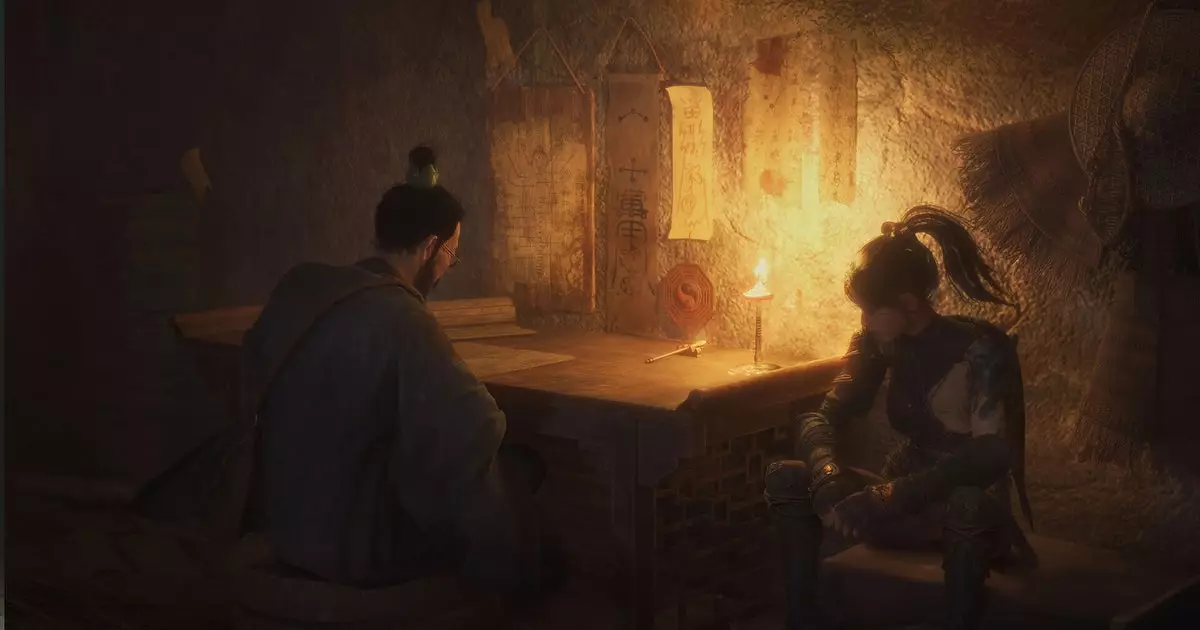In the modern gaming landscape, developers often release patches that inadvertently alter or diminish the core experience of their games. The recent updates to Wuchang: Fallen Feathers exemplify this trend. When a game’s challenge curve is compromised—such as bosses becoming unkillable or encounters losing their intensity—it can alienate dedicated players who seek a difficult and immersive experience. Instead of fostering community engagement or encouraging mastery, these changes can create frustration and a sense of betrayal. Players invest time, effort, and emotional engagement into challenging titles; when these are undermined, it’s not just a gameplay issue—it’s a breach of trust between creators and consumers.
The Wuchang update in particular highlights how developer decisions, possibly influenced by external pressures, can significantly alter narrative perception and gameplay flow. Making significant bosses simply exhaust rather than perish dilutes the narrative stakes and undermines the tension that makes such confrontations memorable. It becomes less about triumph and more about passive endured interactions, stripping away meaningful storytelling. This shift impacts not only gameplay mechanics but also the emotional resonance of the game, transforming a potentially rewarding journey into a monotonous or bewildering experience.
Community-Driven Solutions and Modding as a Resistance Force
In response to these disruptive changes, the gaming community has demonstrated remarkable resilience and creativity. The emergence of mods dedicated to restoring previous versions of games exemplifies how passionate players become stewards of their preferred experience. AVK95’s “Rollback censorship patch” for Wuchang is a prime example—a user-created tool offering an escape route from developers’ controversial changes. While it involves technical complexity, such as disabling automatic updates and manually launching specific game files, it represents a rebellion against the top-down control of game content.
Mods serve a vital role in preserving the integrity of original gameplay, highlighting the importance of community engagement in shaping the player experience. They are a form of digital activism—an act of reclaiming agency from corporate decisions. While this particular mod restores the game’s older flavor, it also illuminates the broader issue of transparency and flexibility in game development. Players increasingly demand options that allow them to tailor their experience, not just accept the one-size-fits-all approach dictated by developers or publishers.
However, the reliance on modding to fix or reverse official patches underscores a significant flaw in how modern games are managed. Perhaps the most compelling criticism is that, in an age of rapid updates, players are left to navigate complex technical workarounds—something that could easily be mitigated if developers provided built-in rollback features or multiple game versions. The absence of such features means players must often become unofficial beta testers and software engineers, which is both inefficient and exclusionary for less tech-savvy audiences.
Balancing Developer Intent and Player Autonomy
This ongoing tension raises critical questions about the balance of power between game creators and their audiences. On one hand, developers may implement changes they believe improve gameplay or comply with external pressures—such as cultural sensitivities or regulatory constraints. On the other, a vocal segment of the community might find these alterations diminish the game’s authenticity and challenge. If the goal is a healthy, active player base, then listening to community feedback and providing options to retain original mechanics should be standard practice.
In the case of Wuchang, the absence of a direct way to revert patches officially accentuates the importance of community workaround tools. Yet, relying on third-party mods introduces its own risks—such as stability issues, malware, or incompatibility with future updates. Ideally, developers would recognize this disconnect and offer transparent pathways for players to choose their preferred experience, whether that involves official patch toggle options or separate game branches.
Modern modding exemplifies the democratization of game development, where passionate fans contribute to the longevity and diversity of titles. Nevertheless, this should not be the primary solution to what is fundamentally a developer-driven decision. Creating open lines of communication and flexible software design would foster trust, allowing players to enjoy both the intended challenges and their personal preferences.
The Path Forward: Empowering Players in an Evolving Industry
As the industry matures, the importance of respecting player agency becomes ever clearer. Developers should view mods not merely as hacks but as collaborative tools that enhance game longevity and community satisfaction. Incorporating official support for version control or customizable difficulty settings would demonstrate a commitment to inclusivity and player choice.
Furthermore, transparency in patch notes and development intentions fosters a healthier relationship between creators and fans. When players understand the rationale behind changes and are given options to opt-in or out, the need for community-developed solutions diminishes. Games are most compelling when they respect their core identity and accommodate the diverse desires of their audience.
Ultimately, the Wuchang scenario underscores a broader truth: in the digital age, the power dynamic is shifting. Players are not just consumers but active participants shaping their gaming worlds. Embracing this shift through better design, open communication, and support for community creations will lead to richer experiences—ones that honor both developer vision and player passion.

